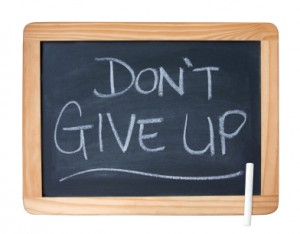The journey of job searching may be laced with times of hope and, on the other side of the coin, feel like waters that often swirl out of control. Navigating rejection is one of the most dreaded occurrences during this process. Whether it’s radio silence from a would-be employer or a blunt “no,” rejection is the brutal reality of looking for work. But it also might be some of the best growing and learning experiences. I know– I’ve learned from mine.
Here are some strategies for how to handle the feedback and rejection from your job search, turning those setbacks into stepping stones toward your goals for your career.
How to Make Sense of Rejection in the Job Market
First, it’s crucial to recognize that navigating rejection is not a reflection of your worth as a person or professional.
I was crushed the first time I was rejected from a job I really wanted. I let it get to me, it affected my job search for a solid week, and I let it control my feelings about myself.
The job market is influenced by numerous factors beyond your control, such as timing, the specific needs of a company, and the pool of applicants. Sometimes, rejection speaks less of your qualifications and more of the lack of fit. Maintaining such a perspective can assist you in not losing confidence and resilience in the face of rejection.
Embracing Feedback
Take the notion of feedback from the premise that when you receive the feedback, negative or positive, you receive it as a gift. Constructive criticism can provide invaluable insights into areas for improvement, whether it’s your resume, interview skills, or certain qualifications. If feedback is not automatically provided, don’t hesitate to ask for it politely. Use the information to refine your approach and make it a stronger candidacy for your next opportunities.
Building Resilience
Building resilience is like your emotional armor in the job search. It includes adopting a growth mindset where every experience is taken as an opportunity for learning and development. So, pat yourself on the back for every effort and all the progress you’ve made, not only the outcomes. Be compassionate with yourself and remember that persistence is what will finally make your efforts pay off toward your career goals. Be patient.
Fine-Tuning Your Approach
Use rejection as another chance to reassess and fine-tune the areas of your job search that may not be working. Look for patterns in the feedback; all the comments seem to be leading toward only a few themes. What are the skills or experiences that you could fill in more detail? Is there any gap in your resume that you want to fill? The intention of this self-analysis is that with the realization, it will be possible to make targeted improvements in your job search approach so that you emerge stronger as a candidate in the race. What do I really want to do? How can I stand out as the obvious choice?
Networking and Mentorship
Developing a supportive network of family, friends, and professionals helps in receiving emotional and practical advice. Look for mentors who can guide and review your application documents and provide insights into your target industry. In addition, networking could act as a source of new opportunities by way of relationships, perhaps for job leads more befitting.
Expansion
Sometimes, even a rejection can be a time to broaden your scope. Look at related fields and even opportunities where you could gain that advancement knowledge, and be open to the possibility of more education if it is in line with reaching your ultimate career goal. You can do this to make yourself more well-rounded and appealing to prospective employers. Thinking of getting that certification? Do it!
Staying Positive and Healthy
Maintaining a positive outlook is crucial, but it’s equally important to look after your mental and physical health while navigating rejection. Job searching can be stressful, so engage in activities that boost your well-being, such as exercise, hobbies, and spending time with loved ones. A healthy balance can keep you motivated and reduce the toll of rejection.
Back when my first rejection hit me, it was in the Fall. That is when I learned to can. During that job search and rejection time, I canned tomatoes, salsa, pickles, applesauce, pears, and so much more. It relaxed me AND it made me feel productive even though my job search wasn’t productive.
Persistence Pays Off
Remember the power of persistence. Every ‘no’ is bringing you closer to the ‘yes’ of destiny. Stay committed to your job search but be flexible in your approach. Be ready to learn, change, and jump at new opportunities. Navigating rejection isn’t always a straight path.
Learning from Success Stories
Find motivation from the success stories of people who have received rejections but later on have been hired in the company of their dreams. It may have helpful advice and motivation for moving forward. Knowing that even the very successful professionals have been rejected many times could make it normal and foster tenacity. ‘They’ve been through this, and look where they are now!’
Get Professional Help
If rejection is taking a toll on your confidence or even mental well-being, then consider seeking assistance from either career counselors (hello there!) or mental health professionals. They would provide techniques with which to deal with rejection, measures to make your job search better, and ways to handle stress.
Conclusion
While navigating rejections within your job search can surely be difficult, it is also an opportunity for growth and self-improvement. Practice embracing feedback, bouncing back, refining your strategy, and staying positively healthy in mind and body, and you’ll turn rejection into an incredible force for moving your career forward. Remember, every “no” is a step closer to the “yes” that will open the door to new professional adventures. Keep learning, adapting, and persisting—your perseverance will pay off.








